Either we are ready or not, computers are reaching the masses. This is good news, perhaps the best since the psychedelic era.
So began a story published in the anniversary issue of Rolling Stone magazine, celebrating its fifth year of publication (December 7, 1972). The story was titled "Spacewar: Fanatic Life and Symbolic Death Among the Computer Bums" and was written by Stewart Brand, a tall, lanky Californian who had already gained fame as the publisher of the Whole Earth Catalog. Brand's biography was unique, although he was known as a fan of the counterculture. In the 1960s, while at Stanford University, he had participated in government-funded experiments with hallucinogens. He also helped Doug Engelbart present his work on interactive computing at the legendary December 1968 Fall Joint Computer Conference in San Francisco. Brand was quite familiar with computers and the new ways of using them as interactive tools.
Brand's words proved prophetic. Computers did indeed reach the masses. Moreover, the entry of computing power into the mass market obviously had a greater impact on society than the spread of psychedelic drugs. However, the personal computer did not arrive in the way Brand - or almost anyone else - had expected. The development of the personal computer followed a path that could hardly be described as rational. Trying to describe those years, from 1972 to 1977, one cannot help but recall the words of Mark Twain: "Few things happen at the right time, and the rest don't happen at all. The conscientious historian will correct these imperfections."
...
Thus begins Paul Ceruzzi's account of the emergence and development of personal computers. One could not imagine a more anti-heroic beginning for the third industrial revolution: the eccentric 1970s, psychedelia, circuit-bending with screwdrivers (and quite a bit of U.S. Department of Defense involvement, high and far away...)
Although several prophets emerged in the course of developments (almost always with a somewhat unconventional or liberal countercultural background), along with manifestos and declarations, the third industrial revolution, because it was capitalist (and not something else...), proceeded in ways that nobody had imagined even approximately. It advanced much further and deeper than one might assume by looking at today's handheld personal computers (smartphones): into the sciences and health applications, into DNA and brain/neural system research; into new materials and chemistry; into the entertainment and communications industries; into the construction of ideology, consent, or indifference; into the (global) restructuring of the "labor market"...
How many people over the past 40 years have realized they are living through an industrial revolution? Fewer than few! On the contrary, the practical developments and their social consequences unfolded within a fog that sometimes carried the remnants of the liberal optimism of the 1970s and 1980s, and at other times a kind of "instrumental mysticism" - eventually mostly the latter...
Until the third industrial revolution matured enough to "give birth" already to the fourth... Now, however, there are differences in the "birthplaces." First, the fourth industrial revolution has been officially announced! And this is because it is no longer being initiated by psychedelics and eccentrics, but by states and corporations that were shaped by - or maximally exploited - the achievements of the third. In other words, where in the 1970s there was curiosity, a playful spirit, and uncertainty, now there is a certain plan.
Moreover, optimism has reached its limits. Today's prophets announce dangers: from robots... from artificial intelligence... The colors of the transition from industrialism (the second revolution) to "post-industrialism" (the third) were cheerful. Now, in the transition to the fourth, they are dull.
Yet there is something common between the optimism of that time and today's pessimism: the emphasis on the fact that these are capitalist processes!!! Just as the fundamental capitalist functions did not disappear behind the (once) liberating allure of cyberspace and the internet, so they will not disappear behind the dark dystopia of a world where, supposedly, robots will work and humans will beg (state welfare)! The fundamental rules of accumulation and control are what generate technological restructurings - not fate or hallucinogens.
What is happening, therefore, is that from industrial revolution to industrial revolution, the field of capitalist exploitation/subjugation is expanding. The actual subordination of society to capital is advancing - as our political ancestors had already indicated back in the 1970s...
Ziggy Stardust
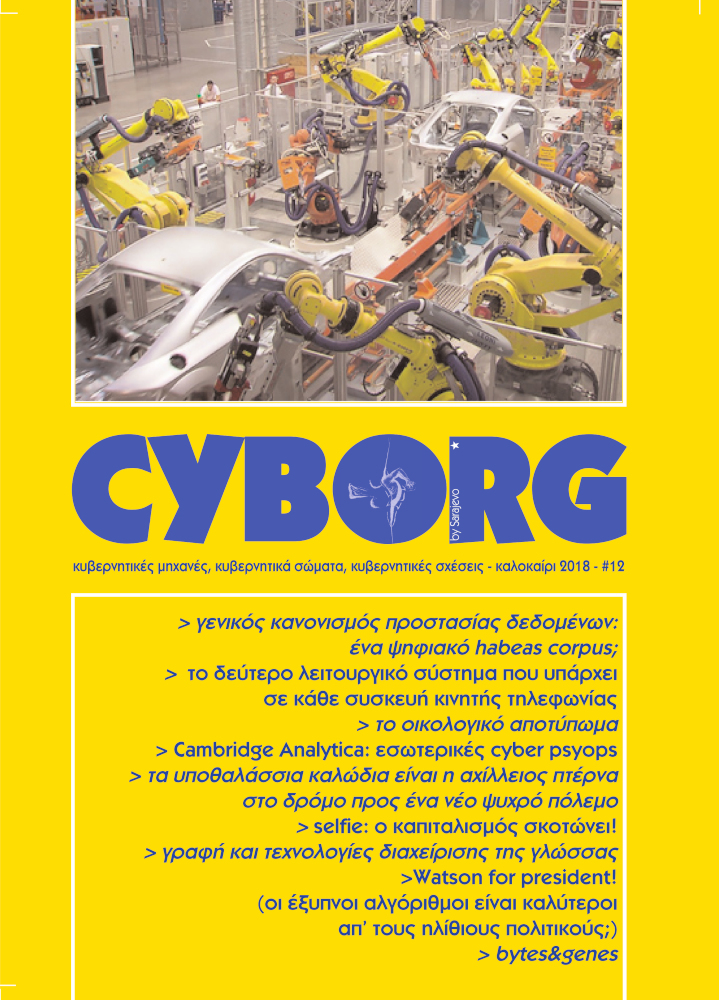

general data protection regulation: a digital habeas corpus?

the second operating system that exists in every mobile phone device

the ecological footprint

Cambridge Analytica: internal cyber psyops of the 4th world war
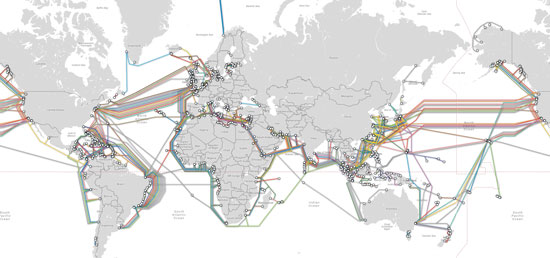
Undersea cables the Achilles’ heel in lead-up to new cold war

selfie: capitalism kills!

script and language management technologies
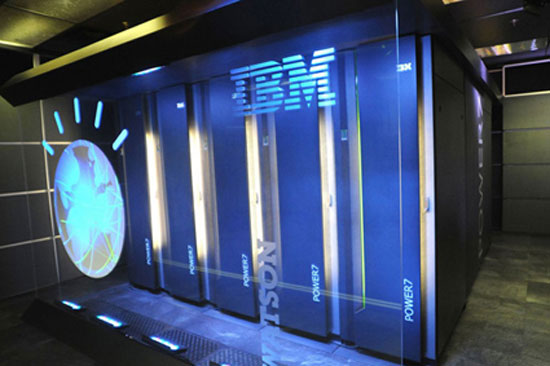
Watson for president!(are smart algorithms better than stupid politicians?)
bytes & genes

Death is inevitable (for cyborgs and humans)

Drones

On/off

Fake2Fake

Dream city
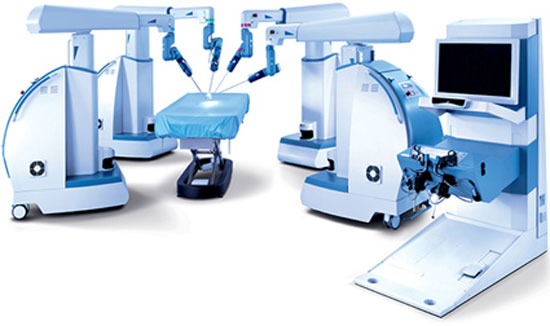
Robotic surgery
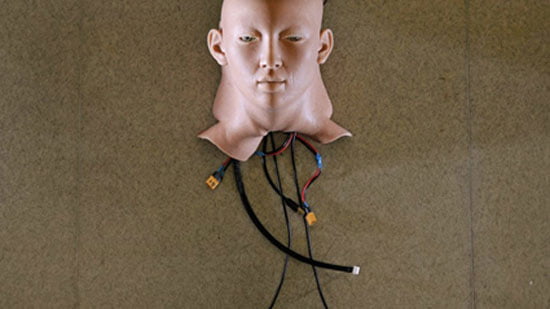
The French and the Germans don’t like…
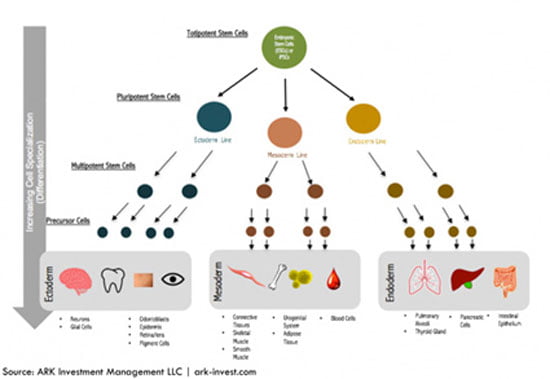
Stem cells
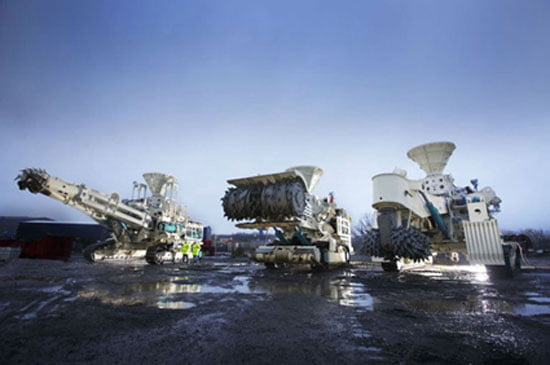
Don’t even think about escaping!!!

Instant Response

Eyes on the back!
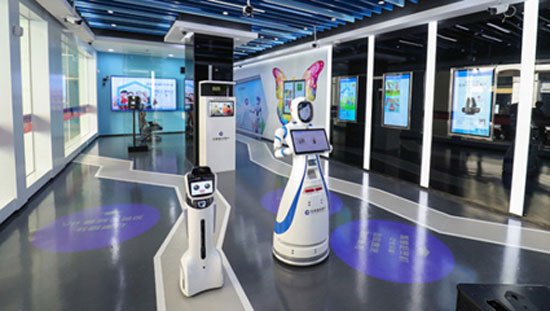
Welcome to our store!

Live tests
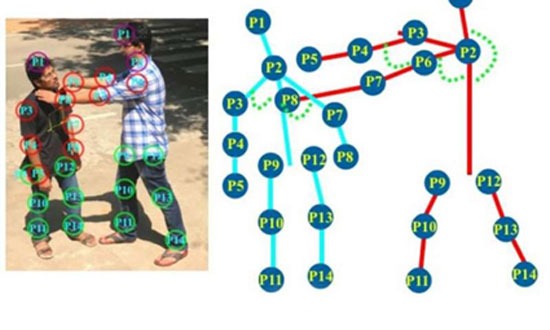
Monitoring details

Closed stores

